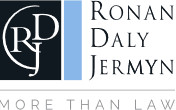Darryl Broderick: Your eggs or mine – the law on passing off

Darryl Broderick
Partner Darryl Broderick and trainee solicitor James Leahy at Ronan Daly Jermyn (RDJ) examine a new Court of Appeal ruling restating the law on passing off.
Although passing off cases are a rare phenomenon in Irish courts there have been times when businesses have sought the litigation route to stop a person or a business from passing off their goods or services. Passing off is where one business misrepresents or passes off their goods or services as if they were the goods or services of another1. More often than not, these type of cases settle on the steps of the court before proceeding to trial such as in the case of Tribune Newspapers plc v Associated Newspapers2. Perhaps the most notable Irish decision on passing off is the Supreme Court decision in McCambridge Limited v Joseph Brennan Bakeries3 where it was held that Brennan’s were found to be passing off McCambridge’s whole meal bread. Although cases do not always proceed to a full trial, passing off has become an established “litigation strategy”4 in Irish courts.
A recent Court of Appeal decision in the case of Galway Free Range Eggs Limited v Kevin O’Brien, Carmel O’Brien and Hillsbrook Eggs Limited5 is a rare but welcome clarification of the law on passing off in this jurisdiction.
Background
The plaintiff, Galway Free Range Eggs Limited, was successful in obtaining a permanent injunction restraining the defendants from passing off their goods as goods of the plaintiff. In short, the case involved the plaintiff objecting to the defendants trading under the name “O’Briens of Galway Free Range Eggs” in or about 2012 as the plaintiff had been trading under the name “Galway Free Range Eggs” since 1994. The argument put forward was that the defendants were branding and advertising their eggs with such a similar name to that of the plaintiff that consumers would mistakenly purchase the defendant’s eggs and not those of the plaintiff.
The Triple Test
In order to be successful in a passing off action one must satisfy the passing off test otherwise known as the “triple test”. Both the High Court and Court of Appeal referenced Jacob Fruitfield Limited v United Biscuits (UK) Limited6 in setting out this test. Firstly, a reputation or goodwill must exist in the claimants’ product including, where appropriate, in a brand name or get-up. Secondly, a “misrepresentation” must occur leading to confusion between what is alleged to be the offending product and the claimants’ product. The misrepresentation does not need to involve a deliberate act on the part of the alleged infringer. Finally, the court must ask whether the damage to the claimants’ goodwill or reputation by virtue of any such confusion has been established7. A plaintiff who is alleging that passing off has occurred must prove that each of the three aspects of the test are satisfied before they will be successful in their action.
The High Court
The plaintiff was unsuccessful at both the interlocutory stage and the substantive hearing in the High Court. O’Connor J decided that the plaintiff had failed to establish the defendants used the O’Brien name and the name “Galway” in a manner, which did not accord with honest practices. Furthermore, he was sceptical of the survey evidence adduced by the plaintiff and ruled that the plaintiff had not established a misrepresentation leading to confusion between the egg boxes of the parties.
The Court of Appeal
The plaintiff appealed the decision of the High Court on four grounds. Firstly, they contended that O’Connor J. did not decide on the first limb of the test as he had not decided on whether the plaintiff had established the existence of a reputation or goodwill in its product. Secondly, the plaintiff argued that the High Court did not deal with the issue of similar brand names. Thirdly, they contended that the court misconstrued the EU regulations namely the European Communities (Marketing Standards for Eggs) Regulations 2009 (S.I. Number 140/2009) and finally that it erred in applying the survey evidence to the case at hand.
The Court of Appeal agreed with the plaintiff. In applying the “triple test”, it found that, the plaintiff’s product had an established reputation and goodwill, with Costello J referring in particular to the survey evidence and the evidence of the first named defendant.
In deciding on the second limb of the test, the Court of Appeal asked the following question, “…is there a real likelihood that the public would get an impression of a connection between the business of the appellant and the business of the respondents?”8 In answering that question, the Court of Appeal noted that the High Court erred in assessing the survey evidence. Importantly, the court held that there was no requirement that the appellant establish that the actions of the respondent had caused confusion, rather the test is whether the use of the brand name by the respondents ‘is likely to confuse people into perceiving a link or association’ with the appellant.
Finally, in deciding whether proof of damage to the appellant’s goodwill or reputation had occurred the court noted that in order to obtain injunctive relief restraining passing off in a case such as this it was not necessary for the plaintiff to show that it had suffered actual damage. Finding the plaintiff’s appeal, successful Costello J. granted the injunction to restrain the respondents from trading under the name “O’Briens of Galway Free Range Eggs”. Given the Court of Appeal’s finding on passing off it noted that it was unnecessary to consider the appellant’s trademark infringement claim.
Survey Evidence
The High Court erred in its treatment of the survey evidence believing it to be tenuous and unreliable and approached the market questionnaires and opinions obtained with a degree of scepticism. The Court of Appeal came to the finding that survey evidence is admissible in passing off claims to prove the opinions of members of the public on matters as to reputation or the likelihood of confusion. The weight to be attached to such evidence is a matter for the court.
EU Regulations
The High Court recognised that the European Regulations referred to above requires egg boxes to be labelled ‘free range eggs’, ‘barn eggs’ or ‘eggs from caged hens’. However, the Court of Appeal found that the trial judge was in error in failing to recognise the limitation of the legal requirement to mark the packaging in accordance with the regulations. In other words, it could not be argued that the respondents were acting in accordance with the regulations by choosing the brand name that they did. Rather complying with their obligations under the regulations did not entitle the respondents to appropriate the goodwill of the plaintiff in its brand name or business.
Conclusion
The Court of Appeal’s decision has restated the “triple test” as part of Irish law and the value of survey evidence should not be dismissed so easily when proving a case in passing off. This decision confirms that passing off may occur based on one characteristic. As the plaintiff had such a goodwill under the name “Galway Free Range Eggs”, the confusingly similar brand name of the defendants was enough to amount to passing off.

- Darryl Broderick is a partner at Ronan Daly Jermyn. You can view his profile here. James Leahy is a trainee solicitor.
1 O’Neills Irish International Sports Co Ltd v O’Neills Footwear Dryer Co Ltd, Unreported, High Court (30 April 1997).
2 Tribune Newspapers plc v Associated Newspapers, Unreported, High Court, (25 March 2011).
3 McCambridge Limited v Joseph Brennan Bakeries [2012] IESC 46.
4 Law of Torts, McMahon & Binchy, (Bloomsbury Professional, 4th Edition, 2013).
5 Galway Free Range Eggs Limited v Kevin O’Brien, Carmel O’Brien and Hillsbrook Eggs Limited [2019] IECA 8.
6 Jacob Fruitfield Limited v United Biscuits (UK) Limited [2007] IEHC 368.
7 Ibid at paragraph 2.
8 Galway Free Range Eggs Limited v Kevin O’Brien, Carmel O’Brien and Hillsbrook Eggs Limited [2019] IECA 8 at paragraph 34.








